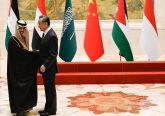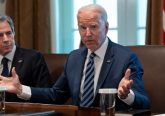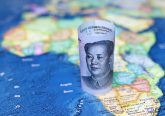Relations between Germany and Taiwan strengthened in 2022, despite Germany’s reluctant acceptance of Beijing’s One China Policy. Meanwhile, bilateral economic ties with both Taiwan and China have sparked discussions about Germany’s foreign policy goals and whether Berlin is reviving the antiquated diplomatic strategy known as Wandel durch Handel (“Change through Trade”) amidst Europe’s growing security vulnerabilities.
In June 2023, Germany and the Chinese state-owned firm COSCO signed a contract for the sale of shares in Hamburg’s seaports. Chancellor Olaf Scholz’s visits to Taiwan, once unimaginable , were strategically timed to coincide with the contract. Two months later, Germany established an agreement with TSMC, Taiwan’s largest semiconductor company. Prevailing narratives among policy circles view Wandel durch Handel as a relic from Germany’s regulatory past. However, Berlin’s recent initiatives suggest otherwise, as it strategically pursues diplomatic and economic ties with both countries.
Economic security experts are uncertain about the resurgence of Wandel durch Handel, despite its historic success in overcoming East-West conflicts post-World War II. They consider it to be a risky endeavour to counter China – the EU’s largest economic partner – given Beijing’s demands on the international community to alienate Taiwan. On the other hand, proponents of the strategy maintain that commerce affects international systems in a reciprocal manner, and that authoritarian countries cannot succeed economically in the long term without cooperation from international political institutions. Rodrik, for example, argues, that reforms in single-party political systems are more likely to be initiated by external factors and that “historically trade policy changes have almost always been preceded (or accompanied) by changes in the political regime.” Berlin is tacitly confident in its policy promoting change. In this sense, Germany may offer a ray of hope for the future multipolar global order.
Taiwan’s strategic importance for Europe
Not only is Taiwan the fifth largest trading partner for Germany and the EU, the country also holds strategic importance for the EU’s eastern fronts. First, Taiwan is geographically located at the centre of the chain of islands formalised by maritime strategies during the Cold War. This strategic chain stretches from the Japanese archipelago through Taiwan to the Philippines, making it pivotal to the EU’s maritime strategy vis-à-vis China and Russia.
Second, Taiwan is a pluralistic democracy offering a crucial regional counter-model to the authoritarian government system of the People’s Republic of China (PRC). The country adopted liberal democratic values in the 1980s and ensured the sustenance of these politics with the presidential form of an elected government. Finally, Taiwan is a leading global manufacturer of semiconductors. Semiconductors are core elements of renewable energy electrical systems, and offers a vital industry for Germany and the EU to improve its energy efficiency.
In sum, despite its relatively small population (23.6 million) and GDP of USD 668.5 billion, Taiwan has managed to become the eighth largest economy in Asia, representing a pillar of macroeconomic stability that is beneficial to the EU in the long term.
Foundations of Authoritarian Concessions
Wandel durch Handel is one dimension of former West Germany’s New Ostpolitik approach. The policy is credited to the former German Chancellor and Nobel Peace Prize winner, Willy Brandt, and his senior diplomatic adviser, Egon Bahr, who advocated for détente and peaceful coexistence between the western Federal Republic of Germany (FRG), the eastern German Democratic Republic (GDR) and the Soviet Union (USSR). This policy subsequently led to the reunification of Germany, several eastern treaties (Ostverträge) between the FRG and the USSR, and subsequent Perestroika reforms of the Soviet Union, catapulting Germany onto the international stage.
At the same time, the east-west discord gave rise to the One China Policy, now a pillar of Sino-US diplomatic relations. After the 1949 Chinese Civil War, the Kuomintang, representing the eastern front, withdrew to Taiwan, while the communist PRC took control of the western front. The Chinese government consequently formalised the anti-secession law in 2005, asserting the sovereignty of ‘One-China’. Currently, around 181 nations uphold diplomatic relations with China and non-governmental relationships with Taiwan in favour of the One China policy.
Debunking the sceptics: Wandel durch Handel 2.0
The Sino-German relationship marked its 50th anniversary in 2022. However, a clear rift has developed between the two partners, who have grown increasingly politically incompatible and are largely aligning for economic necessity. While the EU-China Comprehensive Agreement on Investment (CAI) may have facilitated long-term growth for both nations, it has led to unfavourable effects. Declining foreign direct investment (FDI), aggressive trade practices by Chinese companies that offer little to no protection for EU investors, and state-owned industries plagued by accusations of anti-human rights practices have posed persistent challenges for the EU. In addition, economic turmoil have bent the scales of power, costing Germany a trade deficit of USD 16 billion vis-à-vis China. Tensions have also been amplified by the Russo-Ukrainian war, the Sino-US trade war, the climate catastrophe, and the energy crisis, further exposing strategic weaknesses in this alliance.
Despite these upheavals, both countries have chosen to enter a period of “modified continuity”. Starting in 2022, Germany agreed to allow COSCO, China’s state-owned logistics company, to own a minority position in three of Hamburg’s seaports. Simultaneously, Chancellor Scholz’s trip to Taiwan drifted away from the usual protocol of the One-China Policy. In a public statement, Scholz announced, “I have made it clear that any change in Taiwan’s status quo must be peaceful or by mutual agreement”. The chancellor’s Zeitenwende (“turning point”) speech to the Bundestag in February 2022 reiterated his steadfast commitment to harmonizing the country’s economic and geopolitical interests, while reaffirming Germany’s support for global cooperation. Simultaneously, Germany and Taiwan established several cooperation agreements, the most significant of which was the USD 3.8 billion partnership between Berlin and the Taiwanese company TSMC to establish a semiconductor production facility in Dresden, Germany.
According to realists such as Schwarz, Germany is Europe’s “central power” or Zentralmacht. By maintaining rapprochement and economic ties with both of its eastern front allies, Germany is promoting multipolar diplomacy within a regional order while projecting its authority throughout the broader international system. The Wandel durch Handel logic underpinning Germany’s strategic alignment and trade with diverse partners suggests that Berlin views the future in terms of a “regio-polarity” as opposed to a multipolarity. By initiating democratic compromises from authoritarian partners, Germany could ultimately coerce China to alter its political positions.
German diplomacy is based on democratic principles of reconstruction and reformation. Through the manifestation of such principles, Germany’s ongoing economic alliance with China will influence the domestic balance of power in Chinese institutions and stakeholders. Democratisation theory holds that strategic alliances lead to regime change, as countries become more susceptible to external influences. Alliances indirectly promote adherence to international democratic norms, by fostering reliance between adversaries, encouraging authoritarian regimes to improve their global standing. Although single-party regimes like China are generally robust in comparison to military dictatorships, their primary shortcoming includes the need to achieve political legitimacy to mitigate internal conflicts, divisiveness within their regional governance strategies, and rivalry among its domestic elites. During his visit to the US, Taiwan’s trade leader emphasised the need to question zero-sum narratives about China’s rising power, stating that the West’s fear of China is unnecessary.
Furthermore, in April 2023, the EU enacted the European Chips Act, which relaxed state aid statutes allowing public-private partnerships to be funded in offshore specialised industries. This led to a nearly thirty percent growth in trade capacity between Taiwan and Germany, and chip subsidies totalling USD 22 billion issued by Germany’s climate and transition fund. As a result, Germany surpassed China as the second-most appealing nation in the world for green energy investments, supporting the EU’s renewable energy production from off-shore alliances. In short, by offering soft diplomacy to regional partners with alternative sources of international legitimacy, Berlin’s Wandel durch Handel policy will reinforce the EU’s mission to lead the global multipolar order, while reducing incentives for China’s elites to maintain the political status quo.
Conclusion: An Optimal Moment for Change
There has never been a better time to practice the policy of Change through Trade. Aligning free trade and liberal values with adversarial partners in the international system is a highly strategic activity. Germany’s revived Wandel durch Handel strategy offers a model for establishing simultaneous bilateral relations with China and Taiwan. This philosophy enables the EU and Germany to advance technological innovations while promoting state interests. Additionally, it encourages China to adhere to international norms and prevent regional disputes within an increasingly multipolar global order. Wandel durch Handel therefore represents a crucial step towards promoting systemic political transformations in China through commerce, as well as international diplomatic participation with Taiwan.






